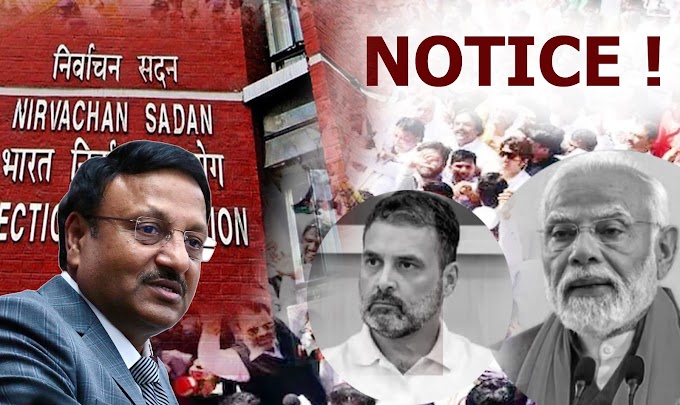The Supreme Court has allowed a 14-year-old victim of sexual assault to terminate her almost 30-week pregnancy.
A Bench led by Chief Justice of India (CJI) D Y Chandrachud on Monday (April 22) said it was a "very very exceptional case where we have to protect her (the girl)".
A Bench noted that a report submitted by the dean of a municipal hospital in Mumbai on the case had “clearly opined that-
The continuation of the pregnancy against the will of the minor may impact negatively on the physical and mental well-being of a minor who is barely 14 years old".
The relief is rare as the Medical Termination of Pregnancy (MTP) Act caps the upper limit for termination of pregnancy at 24 weeks.
Abortion Laws in India
The Medical Termination of Pregnancy Act, 1971 (MTP Act) governs abortions in India. Under this law:
- Abortions up to 20 weeks are allowed based on the advice of one doctor.
- In cases of pregnancy between 20 to 24 weeks, abortion is permitted under certain circumstances, after evaluation by two registered medical practitioners.
- Section 3B of the MTP Act lists seven categories of forced pregnancies, including statutory rape of minors, sexual assault, women with disabilities, or change in marital status during pregnancy.
- After 24 weeks, a medical board must approve the termination, only if there is substantial foetal abnormality.
Court's Previous Decisions
The Supreme Court has allowed terminations beyond the 24-week limit in certain cases:
In February 2024, a 26-year-old woman's request to terminate her 32-week pregnancy was denied.
After the Delhi High Court first allowed the abortion and then recalled its order following a plea by the Centre to consider protecting the right to life of the unborn baby.
On October 16, 2023, a three-judge Bench led by the CJI had rejected a married woman's plea to abort her third pregnancy who had pleaded that it was unplanned, And that she did not have the resources or the mental frame to support the child.
Earlier, on August 21, 2023, a Bench headed by Justice Nagarathna had held a special sitting on a Saturday (when the court is shut) to allow termination of pregnancy of a rape survivor whose pregnancy was at 27 weeks and three days.
Before that, in September 2022, a Bench led by Justice Chandrachud (who was not CJI at the time) had allowed abortion for an unmarried woman who was 24 weeks pregnant, and had been in a consensual relationship.
There are also instances in which a court has overruled the decision of the medical board to allow termination.
In 'Bhatou Boro v. State of Assam' (2017), Gauhati High Court overruled the medical board's refusal to give an opinion for termination of pregnancy of over 26 weeks of a minor rape survive.
Present Case and Risk Assessment
The court noted that while a certain risk was involved in the MTP procedure, The medical board was of the opinion that the threat to her life was not higher than what it would be at the time of delivery if the pregnancy continued to its full term.
The State government has agreed to take the expenses for the procedure, after care and her transportation.
Why the Matter Reached the Supreme Court
The mother of the minor had appealed to the Supreme Court after the Bombay High Court had refused relief in an order on April 4.
Setting aside the High Court order, Chief Justice Chandrachud said the "urgency of the situation and the welfare of the minor was of paramount importance” in the case.
"Every hour is crucial for her [minor]," CJI Chandrachud said.
The court passed the order, saying it would pronounce a detailed one later on. The court's formalities, the CJI said, should not delay the medical procedure.
The Bench had heard the case after court-hours on Friday.
It had sought the assistance of Additional Solicitor General Aishwarya Bhati as amicus curiae.
The court had ordered a medical team to file a report after examining her emotional and physical well-being.
The confidential report was submitted on Saturday.
Changing Laws on Abortion
The 1971 law allowed termination of pregnancy under Section 3(2) if it did not exceed 20 weeks.
The abortion could be done if one doctor opined that it could be done within 12 weeks of conception, and if two doctors could allow it between 12 and 20 weeks of pregnancy.
The MTP Act was amended in 2021 in order to meet the needs of changing times, and empowering several women including rape victims and those undergoing unwanted pregnancies.
The act allowed women's access to legal and safe abortion to reduce maternal mortality.
The MTP rules permitted abortion up to 20 weeks following an opinion of one registered medical practitioner (RMP), and for up to 24 weeks for certain classes of women.
The 2021 amendment also replaced the word "by married woman or her husband" with "any woman or her partner", allowing pregnancies outside the marriage in the ambit of law.
It allowed abortion of unwanted pregnancies for up to 20 weeks on the ground of failure of contraceptives.
Intentional miscarriage is a crime under Section 312 of IPC, attracting an imprisonment of up to seven years, but medical practitioners carrying out abortion are exempt.
To stop female foeticide in India, the government in 1994 brought in the Pre-Conception and Pre-Natal Diagnostic Techniques (PCPNDT) Act to ensure that,
The MTP Act for sex selection is not abused, and to prohibit pre- natal diagnostic techniques for sex determination.












0 Comments